Help! I’ve Fallen into Varney the Vampire and I Can’t Get Out!
Varney the Vampire or the Feast of Blood
In the six years that I’ve been writing for Black Gate (Mr. O’Neill says that my basement cubicle will be ready any day now and I’ll be able to stop working out of my car – oh, wait a minute… I just got a memo that says that due to the current crisis, not only will I be staying in my car, now I’ll be working from the trunk), I’ve written about a lot of books, and when selecting a volume to blather about I’ve had only two simple rules. When I write about a book, it must be one that I like, and it must be one that I have actually read.
I will admit to once or twice breaking the first rule; it can be a lot of fun teeing off on a bad book, seeing just how witty you can be at its expense. By and large, though, the Black Gate mission is a celebratory one. I think we all keep coming back here to find new things to love, not new things to hate, which are already being thrust upon us every minute of our lives.
As for the second rule, that might seem so obvious as to not need to be stated, but haven’t we all finished reading a review of some work we happen to be familiar with and thought, “There’s no way that reviewer can have actually read that book!” (That never happens here, of course.)
My friends, today you are privileged to be present at a historic event. I am now going to break both rules. I don’t like Varney the Vampire, and I make this judgment without having read it – or not read it completely, anyway. My Wordsworth paperback edition runs to 1,118 pages and my bookmark currently rests at page 541. Fine, you say; just push on and finish the thing and then say your peace. Well… I can’t. I just can’t.
No article on vampires is complete without Bela Lugosi
You don’t know how hard I’ve tried. This is an even more humiliating admission considering that I started reading Varney early in… um… 2014. I know this because in February of that year, I put a quote on Facebook from early in the book: “Poverty is no crime, but, like being born a Frenchman, it’s a damned misfortune.” I shared this because I thought it was moderately funny. Little did I know that this witticism would prove to be the sole sip of water in a trackless desert.
I may not be the deepest reader out there, but I am one of the steadiest. Whatever I’m reading, I set myself a minimum goal of twenty-five to thirty pages a day, every day, because at that pace you can read even the biggest book in three or four weeks. I thought Varney would be no different. I really didn’t expect the book to be very good (it is the quintessential penny dreadful, after all) but I did think that it would be a lark, a hoot, and when I was finished, I would be able to boast of having polished off one of those legendary tomes that everyone has heard of and no one has read, like Finnegan’s Wake, Mien Kampf, or The Warren Report. (In this age of genre-blending and mashups, why hasn’t anyone ever thought of combining those?)
One of the better Victorian serials
Anyway, I like big, thick books, and I’m especially fond of Victorian novels. Varney is nothing if not big, thick, and Victorian. Dickens, Eliot, Thackeray, Trollope, Hardy, they all published long, wordy novels that first appeared serially, and I go through their books like… well, if not like crap through a goose (I wonder if General Patton ever finished Varney?), then like a fatty meal through a middle-aged man who has had his gall bladder removed, which is plenty fast enough and too fast sometimes, let me tell you.
But Varney has stymied me. Its dreadfulness is more than nominal and it makes it impossible for me to read it steadily. Every now and then, I pick it up and listlessly flounder my way through a chapter or two, only to quickly find myself becalmed again. I know should give up; smarter readers than I am would have done so long before this.
Ralph Waldo Emerson. Smart man.
Years ago, I came across a quote on just this situation from the Sage of Concord, Ralph Waldo Emerson. He said,
Read proudly – put the duty of being read invariably on the author. If he is not read, whose fault is it? I am quite ready to be charmed, but I shall not make-believe I am charmed.
I recognize the wisdom of the precept but, like admonitions to drink eight glasses of water a day and cut down on salt, I find myself constitutionally unable to follow it. Varney may be the least charming book I have ever picked up, and I heartily wish I could chuck the cursed thing in the recycle bin, but I can’t.
Varney the Vampire was first published in weekly installments beginning in 1845. When the story was completed in 1847 it appeared in book form almost immediately, and it has rarely been out of print since, God knows why. Perhaps its longevity can be attributed to the fact that it’s a volume bulky enough to utterly obliterate the biggest spider, and it’s always nice to have one of those nearby. (The volume, not the spider.)
Sweeny Todd
The book was written by either Thomas Peckett Prest – the creator of Sweeney Todd – or James Malcolm Rhymer (the chap credited on the cover of my Wordsworth paperback, but there are other editions that bear Prest’s name), though “written” is too lofty a word to apply to such a reckless effusion of indiscriminate verbiage. Maybe “penned” would be better, or even “excreted.” Whoever produced it was paid by the line, and piling up those lines was clearly his main intention, bringing to mind Truman Capote’s acid assessment of Jack Kerouac’s On the Road – “That’s not writing. That’s typing.” Prest or Rhymer – I don’t care who’s responsible. Whoever he was, he’s long dead and beyond the reach of my vengeance.
Varney is impossible to summarize with any coherence because there is no coherence in its construction. The story, at least through 541 pages, is as lumpy and inert as a sack of potatoes and as shapeless as a fart. So far, it’s been half a thousand pages of absolutely zero narrative progression, like one of those old soap operas, where you return after a year’s hiatus to discover that Marsha is still pregnant. It’s not a bad comparison, actually, because these penny dreadfuls (“cheap popular serial literature produced during the nineteenth century in the United Kingdom”) were the soaps of their day.
The vampire himself
In Varney, instead of the endless serial sexual and social agonies experienced by those trapped in the eternal loop of General Hospital or All My Children, the members of the Bannerworth family – chief among them Flora, Victorian maiden par excellence, so upright and stainless you could just puke – find themselves caught in a sort of landlord’s nightmare, stuck with a lousy tenant that they can’t evict. For reasons that remain obscure for hundreds and hundreds of pages, Varney wants to drive the family out of Bannerworth Hall and move in himself. It all has something to do with a fortune that got hidden somewhere in the house by the now-deceased father of the family, who was once Varney’s partner in highway robbery, back when they were both alive. I think.
Aside from the molasses-slow revelation of these facts, the only thing that happens over the course of eighty nine chapters (and counting) is that the people in the town regularly rush back and forth, burning down houses as they look to flush the vampire from his hiding place and tear him limb from limb. It seems like every other chapter is filled with rioting yobos; indeed, students of sociology will note that apparently the greatest horror besetting 19th century England was not the undead but rather rampaging proletarians, or at least the fear of rampaging proletarians.
The horror! The horror!
So great an evil is social unrest that at one point the Bannerworths wind up willingly hiding Varney from his pursuers. This is England, after all, and we can’t have the lower orders laying their grubby hands upon a gentleman, even if he is a bloodsucker. This endless one step forward, one step back dance makes reading Varney the Vampire like being caught in a Groundhog Day filled with nothing but risibly florid speechifying punctuated by the depredations of yowling soccer hooligans.
I suspect that it is its sociological and historical interest that keeps the book in print at all; it’s damn sure not because it’s “one of the world’s most enjoyable reads,” as the back cover of my copy boasts. (One of these days I’m going to introduce a Blurb Reader’s Bill of Rights.) Certainly, every time Varney is mentioned anywhere much is made of its influence on the formation of the modern vampire figure and especially on Bram Stoker’s great novel, Dracula. All of which is true, I’m sure, but for myself, I’d rather live in a house than a lumberyard.
Don’t read Varney. Read this.
The only glimmer of light in the whole mess is, oddly enough, the character of Varney himself. The writer tried to imbue the vampire with a tragic dignity and consciousness of his extraordinary fate. Whether he was Prest or Rhymer, he wasn’t good enough to completely pull it off, but neither did he completely fail, and whenever Varney appears (which isn’t all that often) he does have a certain gravitas, especially if you imagine him looking and sounding like Basil Rathbone. Or Robin Williams. Or Porky Pig.
Over the last six years, I’ve tried all three. In any case, the aristocratic Varney is far preferable to the Bannerworth’s uncle, Admiral Bell, who along with his stooge, the constantly inebriated British Tar, Jack Pringle, have the unenviable chore of supplying the story’s comic relief, which is invariably excruciating, Admiral Bell’s crack about the French notwithstanding.
Just 577 more pages…
Will I ever finish this book? I honestly don’t know. I’m beginning to think that completing Varney the Vampire is one of those impossible Sisyphean tasks, like devising a just social order or coming up with a second great Bananarama song. But perhaps these days of enforced isolation at home are actually a heaven-sent opportunity. Maybe the scourge of COVID-19 was visited upon the world for the sole purpose of getting me through the remaining pages of this epic pile; I have little else to occupy me, now that I’ve gotten caught up on The Mandalorian.
Cruel vampire, Cruel Summer!
It’s not likely, I guess… but it’s as plausible as anything that happens in the pages of that War and Peace of utter crap, Varney the Vampire. Anyway, maybe I’ll be back with my final report… in 2026. Maybe. Who knows? I might even be out of the trunk by then.
Thomas Parker is a native Southern Californian and a lifelong science fiction, fantasy, and mystery fan. When not corrupting the next generation as a fourth grade teacher, he collects Roger Corman movies, Silver Age comic books, Ace doubles, and despairing looks from his wife. His last article for us was a review of Once Upon a Time in… Hollywood.
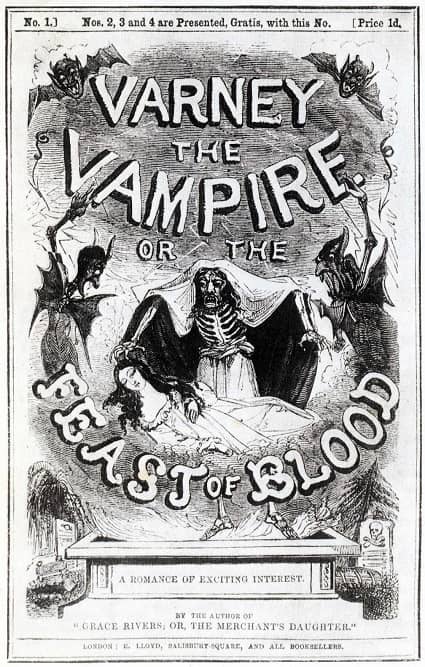
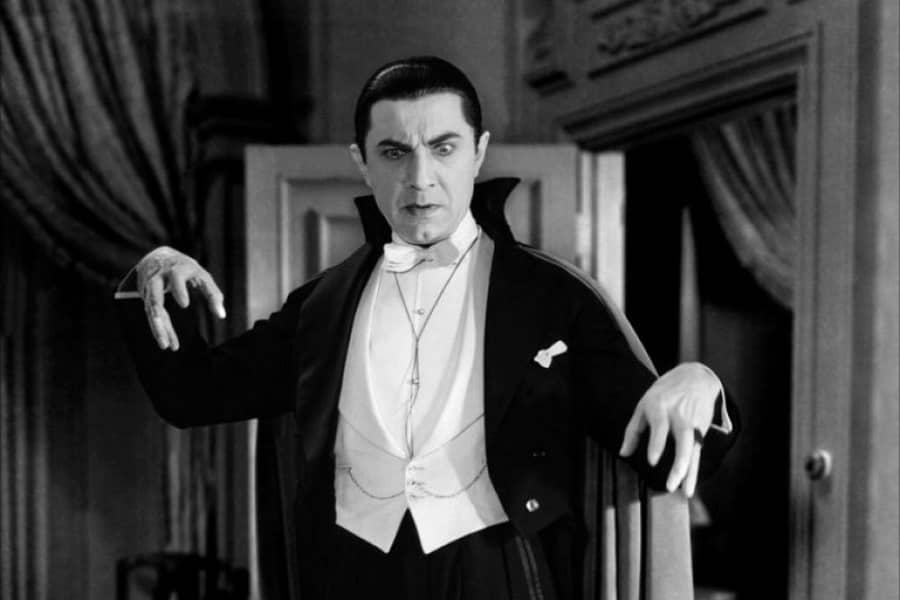
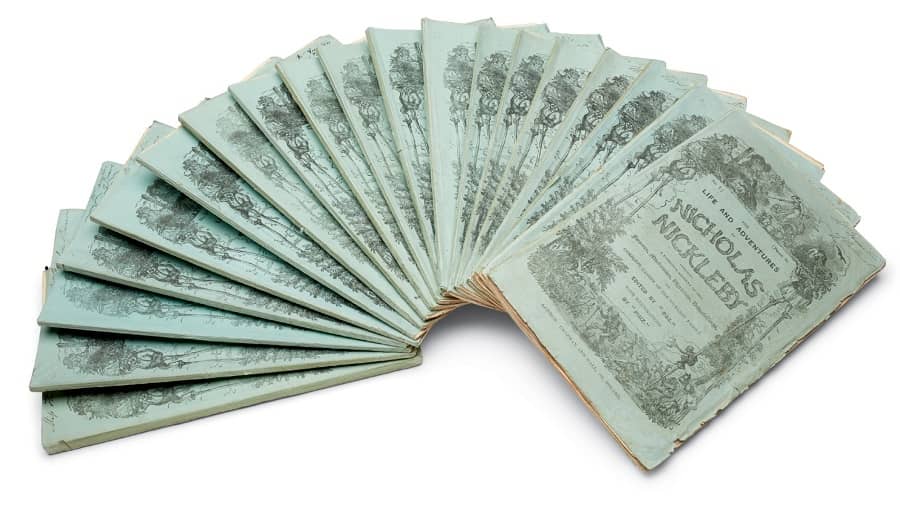
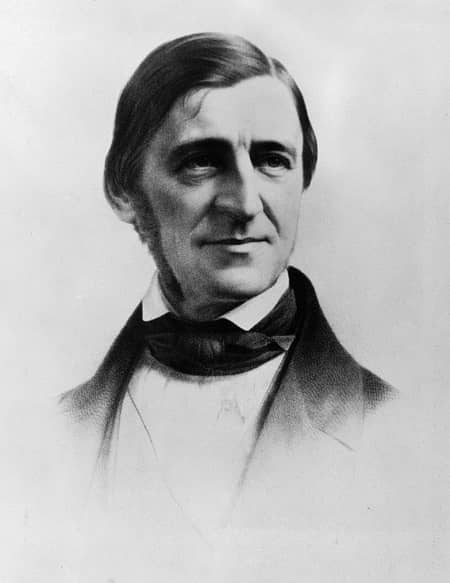
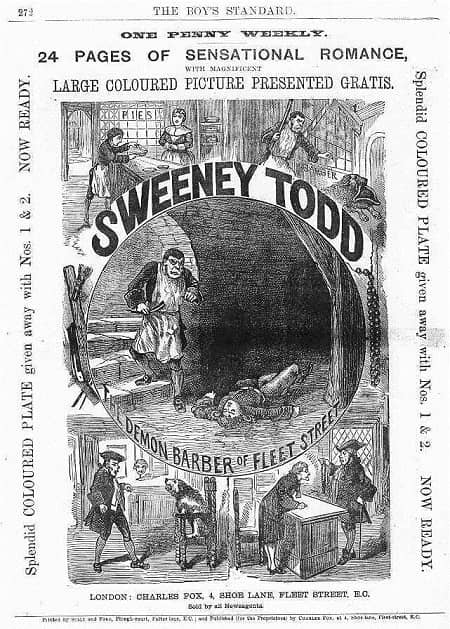
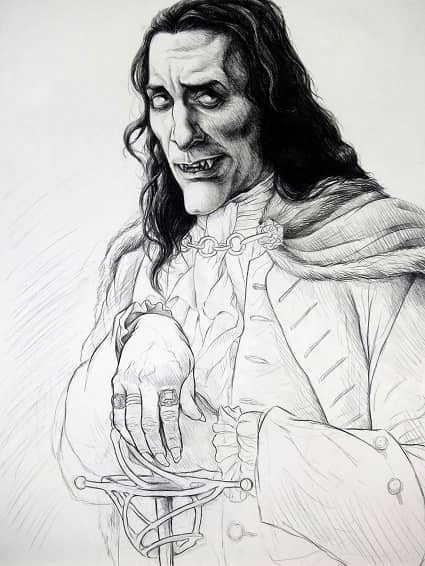
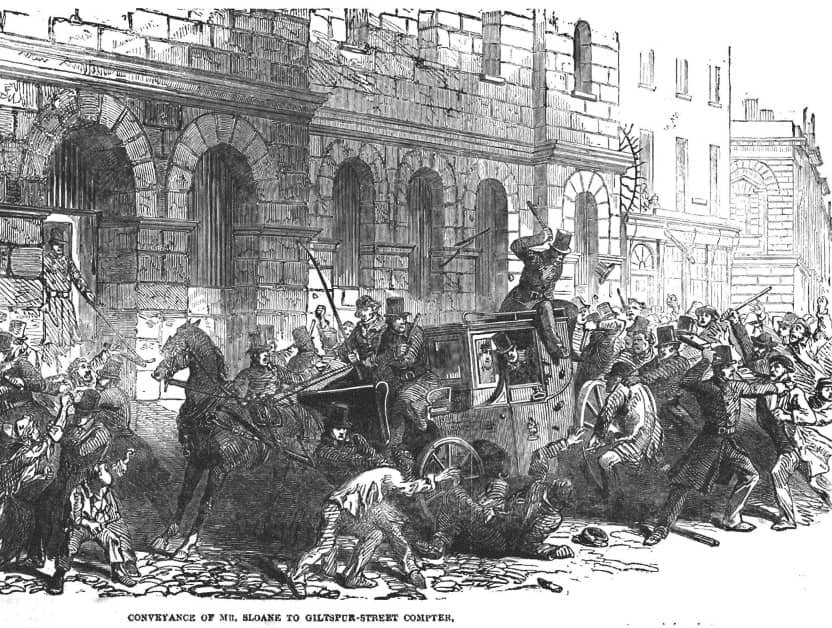
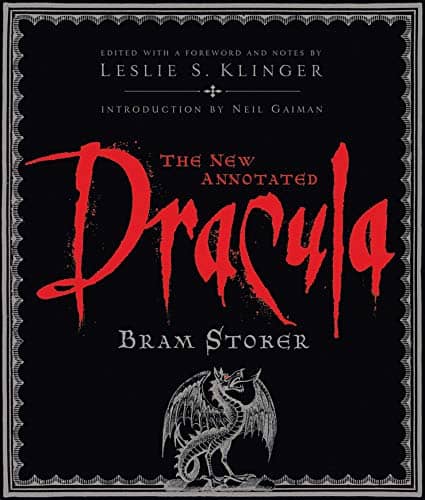

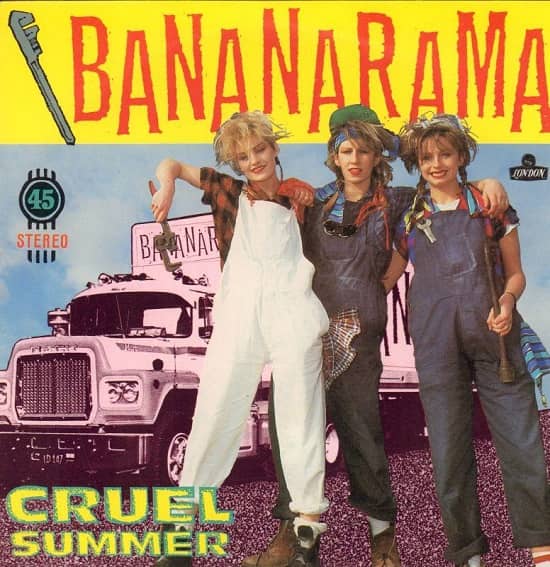
Fair dues to you for even trying to finish it! In my youth I was more of a completist. Now – seeing all that sand trickling through the hourglass – I’m less tolerant. I did read a few Victorian classics recently. Most of them held my attention. Middlemarch is actually an easy (and enjoyable) read. So is most of Dickens. This might be be due to 19th century chapter length – ie, around 3000 – 4000 words. You finish a chapter a night and suddenly you’re done. But I’ve never read any Penny Dreadfuls.
If you haven’t already, you should check out ‘The Beetle’ by Richard Marsh. It’s pretty good and there’s a well-formatted version available on the Internet Archive.
If I have my story straight Karl Edward Wagner wanted to publish Varney the Vampire as Carcosa Press book. I can’t remember why it didn’t come about but it was probably for the best.
I thought about reading Varney but you convinced me not to try.
Aonghus, I read The Beetle several years ago and enjoyed it a lot. It’s a real “ripping yarn.” I’ve read Middlemarch a couple of times. I would say that it’s the greatest novel I’ve ever read with the exception of Anna Karenina, which gets an asterisk because of course I’ve only read it in translation.
This is a painful memory… I’m not sure how far I got on Varney, but I finally gave up. Why? Well, all of what you describe, but the final straw was a chapter/installment wherein a character read a gothic novel and the ENTIRETY of the chapter was a summary of that novel.
Well, it’s almost 2026 .. you’ve got one more year to finish!
I’m in the final 200 pages and let me tell you – you would have HATED the second half. It becomes a series of repeated vignettes of Varney meeting a family abroad, tries to marry their daughter, gets foiled at the last moment and flees. The Bannerworths completely vanish in the second half. And at one point, Varney straight up murders two defenseless women with a sword just to rob them.
It’s pretty clear to me that whoever wrote the first half probably got tired of it and left the project and others took over. The second half bears almost no resemblance to the first. In this way, it very much mirrors how serial television drama works today. Someone like JJ Abrams starts a successful story, then moves on and lesser people take over and run it into the ground.
But yeah, I’m a fan of long works too so I am going to finish it just to say I did.